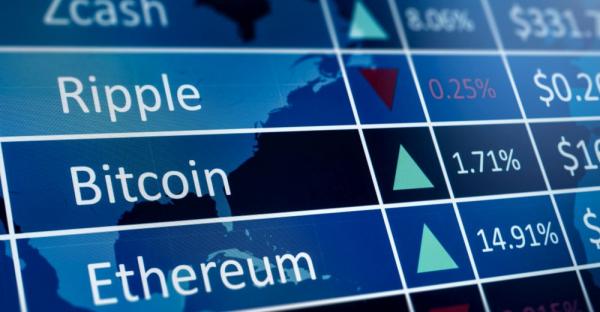What is Cryptocurrency? Everything You Need To Know About Cryptocurrency

You know how when you make payments through your bank or you get money in from someone, you see those transactions on your statement? It’s a list – or ledger – of money in and money out, possibly including bank charges and interest.
Which cryptocurrency will be the next Bitcoin?
But what if you didn’t feel like doing these transactions through a bank? In fact, what if you were so angry at the destruction caused by some banks and governments during the financial crisis 10 years ago that you didn’t want any of your cash to go through their books, particularly if, as in the case of Cyprus, you felt they could take your money? In 2013, bank customers in Cyprus with more than £85,000 in savings had a large chunk of their money confiscated by the government.
That’s why, around the time of the financial crisis, some clever technology bods decided to create a system of money transfers that would circumvent banks, governments and any central authority. That’s how cryptocurrencies came into being.
What are cryptocurrencies?
Cryptocurrencies include the likes of Bitcoin, Dash, Ethereum, Litecoin, Ripple and Verge, to mention some of the top few of the thousand-odd that now exist in the ‘crypto-sphere’.
They work on ‘Distributed Ledger Technology’ (DLT), also known as ‘blockchain’, where that ‘bank ledger’ can be found on thousands of computers (soon to be millions) around the world, recording your transactions many times.
Having a bank ledger on lots of different computers makes it safer because you have many unconnected individuals dealing with it rather than one central authority that could take the law into its own hands. In theory, at least, this makes transactions fraud-proof.
For a start, the rules of cryptocurrencies insist that you can’t rub anything out. Again, this is to counter fraud: no one can do something and then say they didn’t do it.
Also, they’re called cryptocurrencies because the transactions are made secure by cryptography – puzzles – that can only be solved by computers working very hard. The people who run these computers, solving the puzzles, are called ‘miners’ and they earn digital ‘coins’ for doing the work.
Different cryptocurrencies work in different ways – for example, Bitcoin has a finite number of coins, is very inflexible and takes a lot of energy to ‘mine’. Others, such as Ether (Ethereum), are more flexible and cost less to ‘produce’. Ripple (or XRP) is not as decentralised as other currencies because it has no miners. Instead, transactions are powered through a centralised blockchain to make it more reliable and fast. So purists say it shouldn’t be counted as a proper cryptocurrency.
Congratulations @bryanthegreat! You received a personal award!
You can view your badges on your Steem Board and compare to others on the Steem Ranking
Do not miss the last post from @steemitboard:
Vote for @Steemitboard as a witness to get one more award and increased upvotes!